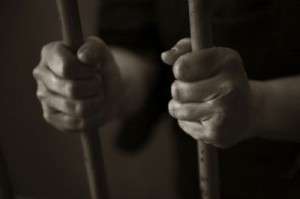Uyghurs Facing Midnight Extradition
Published by UNPO, 18 December 2009

UNPO is deeply concerned for the welfare of 20 Uyghurs as news emerges that they will be returned to China in the early hours of Saturday morning ahead of a visit to Phenh Penh by Chinese Vice-President, Xi Jinping.
wenty-two Uyghurs arrived in Cambodia in recent weeks and have claimed asylum on the basis that they face harsh treatment in China following accusations of an involvement in violent protests on July 5th earlier this year (2009). The charges against them remain unknown.
The Chinese authorities have used the unrest as a smokescreen to increase the use of oppressive policies against the Uyghurs and unwarrantedly label them as criminals. Thousands of Uyghurs have been detained, regardless of their involvement in the demonstrations and ensuing turbulence and the human rights of imprisoned Uyghurs are harshly violated.
Over the past few months, news has surfaced of death sentences being imposed by Chinese authorities on at least 20 of the Uyghurs in custody, 9 of whom were executed in November 2009 to international condemnation (For example European Parliament Resolution Dated 26 November 2009). The trials have been shrouded in secrecy and have been carried out in a hasty fashion. Uyghurs were denied their right to a lawyer and no independent observers were permitted to the trials.
Sending any asylum seeker back to China could very well lead to the detainment, trial and potentially the execution of the people involved. This story is reminiscent of previous instances of extradition where even non-Chinese nationals face unfair trials and long prison sentences when forcibly returned to China. Huseyin Celil an ethnic Uyghur who once fled China and gained Canadian citizenship, was arrested in Uzbekistan in April 2006. He was extradited to China against the objections of the Canadian government and sentenced to life in prison.
Since China has shown utter disregard to its constitutional and international obligations in their legal processes against the Uyghurs, the possible trial of any of the 22 asylum seekers ought to be carried out elsewhere. If the Uyghurs’ refugee status had been confirmed, Cambodia would be bound not to deport them under the 1951 convention to which it is a party and the jus cogens principle of non-refoulement.
The status of these individuals has represented a diplomatic challenge for Cambodia this week as China – Cambodia’s biggest investor- is able to exert economic pressure on foreign relations. UNPO believes that the economic ties between Cambodia and China should not interfere with the asylum seeking process of the 22 Uyghurs in any way. Determining the fate of individuals on the basis of unwarranted economic threats goes against the individual rights of the asylum seekers involved.
UNPO calls on Cambodia to immediately refuse requests for extradition, halt this forcible return and reconsider the decision to grant asylum to Uyghurs who face imminent danger in China.

